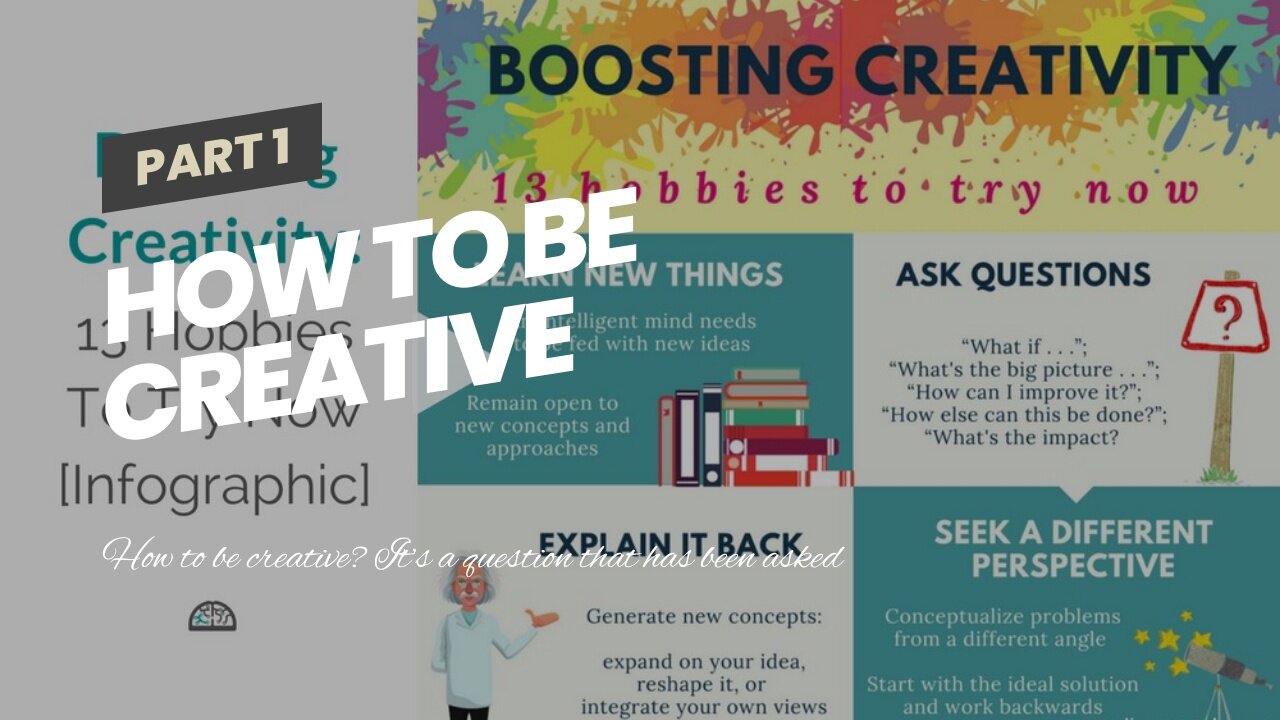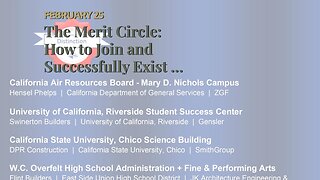Premium Only Content

How to Be Creative
How to Be Creative
How to be creative? It’s a question that has been asked throughout the ages, by everyone from great artists to everyday people. And it’s a question that is more relevant than ever in today’s fast-paced, constantly-connected world.
Being creative has many benefits – it can make you more productive, improve your mental health, and lead to greater life satisfaction. However, there are also some impediments to creativity, such as fear of failure or lack of time.
In this blog post, we’ll explore the benefits of being creative, the barriers to creativity, and ways to overcome those barriers. So whether you’re...
https://finetimer.site/how-to-be-creative/
How to be creative? It’s a question that has been asked throughout the ages, by everyone from great artists to everyday people. And it’s a question that is more relevant than ever in today’s fast-paced, constantly-connected world.
Being creative has many benefits – it can make you more productive, improve your mental health, and lead to greater life satisfaction. However, there are also some impediments to creativity, such as fear of failure or lack of time.
In this blog post, we’ll explore the benefits of being creative, the barriers to creativity, and ways to overcome those barriers. So whether you’re looking to boost your productivity at work or simply want to add more creativity into your life, read on! Photo by Anni Roenkae on Pexels The Benefits of Being Creative.
Increased productivity.
Being creative can help you be more productive in both your personal and professional life. When you tap into your creativity, you are better able to come up with new and innovative ideas. This can make you more efficient and effective in your work, whether it’s coming up with a new marketing campaign at work or finding a more creative way to get the kids to do their homework.
Improved mental health.
Creativity has also been linked to better mental health. According to a study done by the Kaiser Family Foundation, people who engage in creative activities have lower levels of stress and anxiety and higher levels of happiness and life satisfaction. The act of being creative can also help boost self-esteem and confidence.
Greater life satisfaction.
Not only does being creative make you happier, it can also lead to a greater sense of satisfaction with your life overall. A study done by the University of Pennsylvania found that people who engage in creative pursuits are more likely to rate their lives as “interesting” and “full” than those who don’t. So if you’re looking for ways to add more meaning to your life, pursuing creativity might be a good place to start.
The impediments to creativity.
Fear of failure.
One of the biggest impediments to creativity is fear of failure. We are often so afraid of failing that we don’t even try to be creative. Failure can feel like a personal attack, but it’s important to remember that everyone experiences failure at some point. Instead of avoiding failure, embrace it as part of the creative process.
Perfectionism.
Another barrier to creativity is perfectionism. We often think that our ideas have to be perfect before we can share them with others, but this isn’t true. It’s important to remember that there is no such thing as a perfect idea; all ideas can be improved upon. Perfectionism can also lead us to edit our ideas before we’ve even had a chance to fully explore them.
Lack of time.
Another common barrier to creativity is lack of time. We often think that we need large blocks of uninterrupted time in order to be creative, but this isn’t always the case. Creativity can often happen in small moments, in the spaces between our other commitments. The key is to make time for creativity, even if it’s just a few minutes each day.
Ways to Overcome the Barriers to Creativity.
Make time for creativity.
One of the biggest impediments to creativity is a lack of time. We often feel like we don’t have enough time to be creative, and so we don’t make it a priority. But if we want to be more creative, we need to make time for it. It doesn’t have to be a lot of time – even just 10 or 15 minutes a day can make a difference. And it’s important to find a time that works for you; some people are more creative in the morning, while others find that evening or night is when they’re most productive.
Be open to failure.
Another barrier to creativity is fear of failure. We’re afraid that if we try something new, we might not succeed, and so we stick...
-
 5:29
5:29
FineTimer
2 years agoThe Merit Circle: How to Join and Successfully Exist in this Competitive World
476 -
 1:09:53
1:09:53
Game On!
7 hours ago $2.46 earnedThe Masters Day 3 LIVE Reaction!
26.4K -
 23:14
23:14
CatfishedOnline
1 day agoVictim scammed out of $100,000 for 8 years!
30.9K6 -
 17:30
17:30
Bearing
9 hours agoTHIS is why Men Shouldn’t Compete in Women's Sports 🤣
22.2K55 -
 13:19
13:19
VSOGunChannel
1 day ago $1.28 earnedI've Never Cleaned This Gun
18.8K2 -
 16:19
16:19
DeVory Darkins
22 hours ago $10.26 earnedWoke activist dealt HUGE BLOW after judge approves deportation
29.6K114 -
 9:55
9:55
Russell Brand
1 day agoThis Is Absolutely Shocking...
76K83 -
 26:01
26:01
The Brett Cooper Show
2 days ago $3.55 earnedChappell Roan Says All Parents Are Miserable. Is She Right? | Episode 21
28.4K27 -
 1:34:25
1:34:25
Michael Franzese
20 hours agoThey Blame Trump for Everything - But Who’s Really Wrecking the Economy?
65.6K66 -
 1:43:55
1:43:55
I_Came_With_Fire_Podcast
15 hours agoThe REVOLUTION to SAVE AMERICA Starts At HOME
53.9K10